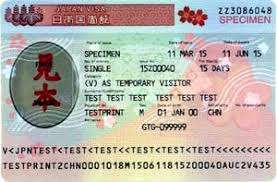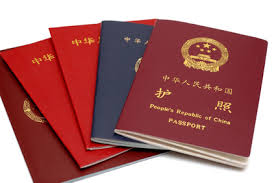Moving to Japan to escape China
Wealthy Chinese are coming to Japan to escape the clutches of the Xi Jinping administration and to protect their own property and personal safety. According to statistics from the Ministry of Justice, the number of such visa holders reached approximately 16,000 at the end of 2010, a four-fold increase over the past 10 years. However, according to one administrative scrivener, deception and fraud are rampant in some cases when obtaining these visas. He believes that in the future, Chinese workers, other than the wealthy, will come to Japan in large numbers. Mr. A, an administrative scrivener, agreed to be interviewed. He is an expert in obtaining visas for Chinese nationals. While I was reporting on the explosive purchase of Japanese real estate by wealthy Chinese, Mr. A told me about a blind spot in the business management visa process. According to Mr. A, before the Corona disaster, many wealthy Chinese had obtained business management visas to invest in Japan and increase their own profits. That is, an increasing number of people are now seeking to emigrate to Japan to escape from China and live in Japan anyway. This is an expression of the desire to protect oneself first, rather than to pursue profit, but perhaps because of this desperate situation, there are some cases of falsification and fraud in obtaining visas. According to Mr. A, for example, Chinese brokers are hired to prepare dummy company registries and fictitious business plans, and then they apply to the Immigration and Residence Management Agency for a business management visa as the president of the dummy company. There have also been cases in which Dami have been employed by a Japanese company that does not really exist, and then fraudulently obtained another work visa called a “technical, humanities, or international services” visa, even though they do not perform any work there. This is because the initial investment is less than that required to obtain a business administration visa, and the process of obtaining a visa is faster.
Using the business administration visa as a cover
What exactly is a business management visa? According to the Ministry of Justice website, it is “a status of residence to engage in activities to manage a trade or other business in Japan or to engage in the management of such business. The requirements for obtaining this visa are as follows: ———- (1) An establishment in Japan to operate the business for which the application is made (2) An investment of at least 5 million yen or two full-time employees (3) The business must be feasible, stable, and sustainable. ———- There are five types of periods of stay, ranging from three months to five years, and usually one year can be obtained in most cases. There are various types of visas that allow Chinese nationals to stay and work in Japan for long periods, including “research,” “diplomacy,” and “professor. In order to obtain this visa, many high-net-worth individuals request an intermediary, such as an immigration consulting firm, which then sends them to a Japanese administrative scrivener to complete the procedures. Mr. A said, “Immigration consultants use administrative scriveners to deceive wealthy people and make huge profits from them. The existence of these middlemen is a big problem. Of course, there are people who set up companies or open stores to conduct serious business in Japan, but there are also those who do not fulfill their tax obligations, Mr. A said. The reason behind such problems is that, as mentioned above, the “real purpose” is to “get out of China anyway,” rather than to do business in Japan. Mr. A said, “The problem is that the business administration visa has become a ‘front for emigration. There are many Chinese who say that there is nothing they want to do in Japan after immigrating.
A Future Overflowing with Chinese
In my previous article, “Did you know that ‘wealthy Chinese’ who emigrated to Japan are suffering from an unexpected problem? I remembered the story of a man who was “killing time” by buying nails and other tools at a home improvement center. When I interviewed him about it, I was frankly just surprised that such a thing was bothering him, but when I thought about it, it was odd that he had obtained a business administration visa and was staying in Japan, but was not doing any business and just playing and living every day. One of the author’s Chinese acquaintances in Japan has a friend who came to Japan with a business management visa, and he told her that he was running a relatively straightforward business such as a beauty salon, a nail salon, or a cafe to renew his visa, but there are probably many people who obtain and renew visas with companies that have no real substance. Regarding the fact that some Chinese immigrate to Japan in this manner, in part by fraudulently obtaining visas, Mr. A said, “This is a negative for Japanese society, and in the wider view, it may lead to a cause of social unrest. Until now, it has been said that the business administration visa is relatively easy to obtain, but as the number of people who want to immigrate to Japan increases, the reality of such irregularities has also come to light. The Immigration Bureau (Immigration Control Agency) should take stricter measures in the future,” he says. While some of these immigrants are acquiring business management visas and buying real estate such as townhouses in Japan without any plans to do business in Japan, Mr. A speculates that low-income earners from the middle class and below will also come to Japan in the future. China is currently experiencing a serious real estate recession, as symbolized by the problems of China Hengda Group and Bi-Gui-Yuan. According to Mr. A, the “Specified Skill System,” which was established in Japan in April 2019, could be a source of employment for these people. This system is a status of residence granted to foreigners with certain skills and knowledge in 14 industries in 12 fields, including construction, nursing care, and agriculture. The purpose of this system is to secure human resources, especially in fields where there is a serious shortage of labor. The hurdle for foreign human resources is low because simple labor does not require academic background or experience in related work. They are expected to support Japan’s labor force in the future. Mr. A concluded his remarks with the following words. I think this trend will continue for a few more years, but after that, people with specific skills will come to Japan in large numbers. I think we will see an era in which it will be laughable to see Chinese buying real estate in Japan and Chinese building real estate in Japan.












